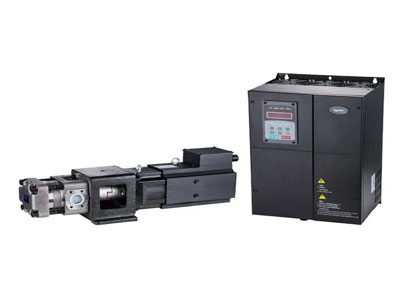What Is Servo System Used For?
Key Takeaway
A servo system is used for precise control of motion in various applications. It includes a motor, a feedback device, and a controller. The system ensures accurate positioning, speed, and torque control by constantly adjusting the motor’s performance based on feedback. This closed-loop system is essential for tasks requiring high precision and reliability.
Servo systems are widely used in robotics, where they control the joints and movements of robotic arms. In industrial automation, they are crucial for operating machinery with precise movements, such as CNC machines for cutting, milling, and drilling. Additionally, servo systems are used in manufacturing, medical devices, and aerospace applications, making them vital for modern technology and automation.
Overview of Servo Systems
Servo systems are advanced mechanisms designed to provide precise control of angular or linear position, velocity, and acceleration. A typical servo system consists of three main components: a servo motor, a feedback device such as an encoder or resolver, and a controller. The controller receives a command signal indicating the desired position or speed of the servo motor and sends a control signal to the motor to achieve this target. The feedback device continuously monitors the actual position or speed of the motor and sends this information back to the controller. The controller then compares the actual feedback with the desired command and adjusts the motor’s input to correct any deviations. This closed-loop feedback system ensures high accuracy, repeatability, and reliability, making servo systems indispensable for applications requiring precise motion control in various industries.

Industrial Applications of Servo Systems
In the industrial sector, servo systems are used extensively due to their ability to provide accurate and reliable control. One of the most common applications is in CNC (Computer Numerical Control) machinery. Here, servo systems control the precise movements of cutting tools, enabling the creation of complex and high-precision parts. Servo systems are also vital in the automation of assembly lines, where they control the movement and positioning of components, ensuring efficient and accurate assembly of products.
In the printing industry, servo systems control the positioning of print heads and substrates, ensuring high-quality print outputs. Packaging industries use servo systems to control the movement of conveyor belts and packaging machinery, ensuring products are packaged quickly and accurately. Additionally, servo systems are used in textile machinery to control the intricate movements required for weaving, knitting, and spinning, enhancing fabric quality and production efficiency.
Uses in Robotics
Servo systems are integral to robotics, where precise control of movement is crucial. In robotic arms, servos control the movement of joints, enabling the arm to perform tasks such as assembly, welding, and painting with high precision. The ability of servo systems to provide accurate positioning and speed control makes them ideal for applications requiring complex and coordinated movements.
Mobile robots also rely on servo systems for navigation and manipulation tasks. For instance, in autonomous vehicles, servos control the steering mechanisms, ensuring accurate path following. In drones, servos adjust the position of control surfaces to maintain stability and control flight dynamics. The high level of control provided by servo systems enhances the performance and reliability of robotic systems, enabling them to perform a wide range of tasks in various environments.
Applications in Automation
Automation systems benefit significantly from the precision and reliability of servo systems. In automated manufacturing processes, servos control machinery that moves and positions materials, ensuring consistent and precise production. This is crucial for maintaining high quality and efficiency in production lines. Servo systems also play a key role in automated inspection systems, where they control the movement of sensors and cameras to inspect products for defects, ensuring only high-quality products reach the market.
In the food and beverage industry, servo systems control filling, capping, and labeling machines, ensuring products are packaged correctly and efficiently. They are also used in the pharmaceutical industry for precise control of dispensing and packaging operations, ensuring compliance with strict regulatory standards. The versatility of servo systems makes them indispensable in various automation applications, enhancing productivity and reducing operational costs.
Benefits of Servo Systems
Servo systems offer numerous benefits that make them ideal for a wide range of applications. One of the primary advantages is their precision and accuracy. The closed-loop control mechanism ensures that movements are exact and repeatable, reducing errors and improving product quality. Servo systems also provide high torque at low speeds, which is essential for applications requiring significant force.
Another benefit is their efficiency. Servo systems are designed to consume power proportional to the load, making them energy-efficient and cost-effective to operate. The ability to handle rapid acceleration and deceleration makes servo systems suitable for dynamic applications. Additionally, modern servo systems come with advanced features such as fault diagnostics, adaptive control, and remote monitoring, enhancing their reliability and ease of use.
Conclusion
The versatility of servo systems makes them indispensable across various industries. Their precise control, high torque, and efficient operation enhance performance and reliability in numerous applications. In industrial machinery, servo systems ensure accurate and consistent production processes, reducing errors and increasing productivity. In robotics, they enable complex, coordinated movements necessary for tasks such as assembly, welding, and material handling. Automation systems benefit from servo systems by achieving smooth, efficient, and precise control of processes, leading to better product quality and reduced downtime.
Additionally, servo systems are crucial in fields like aerospace, automotive, and medical technology, where precision and reliability are paramount. Their ability to adapt to different requirements and environments further highlights their flexibility and importance. Overall, servo systems are essential for advancing technology and improving operational efficiency, underscoring their critical role in modern industry and technology.
